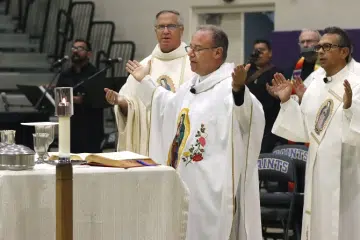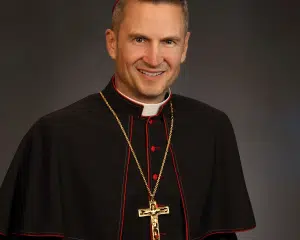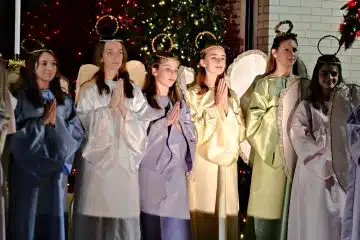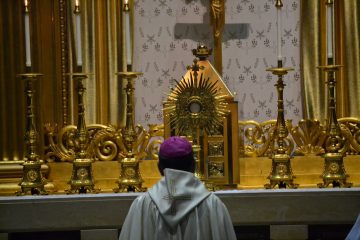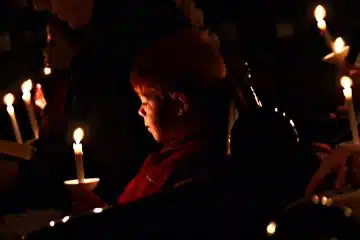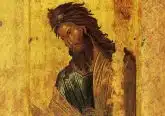What keeps me Catholic: Social justice
Nov. 26, 2010
By Mike Daley
If the Catholic tradition is known for anything, it’s the truths (always rooted in the person of Jesus the Christ) that it proclaims. Some, necessarily, are more foundational than others. For example, perhaps the central theological truth Catholics believe in is a triune God — Father, Son and Holy Spirit.
Similarly, an essential sacramental truth we hold is that Jesus is fully present in the Eucharist. As with any faith tradition which has truths that apply to all facets of life though, some truths and teachings of faith, are disputed, resisted or even denied.
Of all the truths of Catholicism, the ones that I struggle with the most are found in what is called Catholic social teaching. Echoed long before in the Hebrew Scriptures, the life of Jesus, the writings of the church fathers and other notable saints, I don’t doubt or dismiss these truths so much as fail to put them into practice.
Starting with the publication in 1891 of Pope Leo XIII’s encyclical, Rerum Novarum (“On Capital and Labor”), the Catholic Church began to articulate a vision of what it means for humans to be in relationship with one another. At the heart of this tradition is the belief that human life is sacred and deserving of protection from conception to natural death.
It should surprise no one that the Catholic Church is against abortion and euthanasia. What catches some people off guard, however, both inside and outside the church, is that Catholic social teaching is against wars, capital punishment, hunger, exploitation of workers, poverty and the like. Contrary to the thoughts of some well known talk show commentators, social justice is at the heart of the Catholic tradition.
In an American culture that privileges the individual and personal freedom, Catholic social teaching says that we are first and foremost social beings. Whether Democrat or Republican, liberal or conservative, our arguments with one another over our rights rather than responsibilities make it difficult to hear God’s question to Cain: “Where is your brother Abel?” (Genesis 4:9).
More often than not we respond, like Cain: “I don’t know. Am I my brother’s keeper?” We don’t need to be smarter than a fifth grader to know that the answer is “yes.”
In the Catholic tradition then, the common good and personal good are not contradictory but complementary. At times, despite the references to the anti-Christ, government needs to be exercised instead of exorcised.
A nice summary of Catholic social teaching is captured in the statement, His inaugural address if you will, which began Jesus’ public ministry: “The Spirit of the Lord is upon me, because He has anointed me to bring glad tidings to the poor. He has sent me to proclaim liberty to captives and recovery of sight to the blind, to let the oppressed go free, and to proclaim a year acceptable to the Lord” (Luke 4:18-19). In other words, Jesus wanted to “afflict the comfortable and comfort the afflicted.”
As the church continues to make a preferential option for the poor and the marginalized, it also sees that the earth itself is being exploited and abused. We, too, need to respond to it with preference and exercise stewardship on its behalf.
Ultimately, as imaged in Jesus’ story of judgment (Matthew 25), in serving others we encounter Jesus. This is the Gospel truth. As poor of a practitioner of Catholic Social Teaching as I am, it’s also one of things that keeps me Catholic.
Daley is a religion teacher at St. Xavier High School and a freelance writer.


